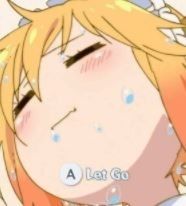Apr 4, 2018
At its core, Violet Evergarden is about the silver linings of loss. The story centers around Violet, an emotionally stunted war veteran finding her place in a peacetime society, working at a job that requires interacting with clients on a personal level; learning to know herself as she learns and explores emotional–and often tragic–experiences of others. We follow her as she grows as a person, eventually realizing and coming to terms with the toxic past she was forced upon, and seeking redemption for a brighter future... An interesting concept with execution that leaves to be desired. This show tries to implement too many things, but
...
falls short in some regards. The worldbuilding is sloppy at best; and some plot elements just don't seem to fit the mood of the anime other than for superficial reasons, ultimately feeling unnecessary.
The 'strongest' aspect of the show, aside from the stunning visuals, is the characterization. Competently developed through both showing and telling, Violet is very literal, blunt and surprisingly perceptive depending on the context. She was used as a weapon her entire life and thus thinks of herself as one, she believes her value as a person is entirely dependent on her usefulness as a tool of war. At first, she is oblivious to her own shortcomings and flaws–mainly her lack of touch and common sense–causing problems for herself and those around her, but it is this dynamic that lets people see their own contradictory nature and allows Violet to peel out their façade. Violet eventually develops her own sense of empathy, not by putting herself in other people's shoes, but vice versa. Projecting her own experiences and point of view onto other people in order to better understand the situation.
Sadly, there are several missteps when it comes to a few major characters and how they are presented, more specifically with Gilbert. 'The Major' is a very shallow and two dimensional character, we don't get to know a whole lot about him other than he cared and fell in love with Violet, all while being remorseful for using her as a weapon. His lack of development makes their relationship feel somewhat contrived. Honestly, he's more of a plot device, a catalyst for Violet's development. This would be OK if not for the fact that a big chunk of the show is spent trying to sell us their connection. Other major characters include Hodgins, Benedict, Cattleya, Erica, Luculia, and Iris. Some of these are fairly fleshed out considering the limited airtime they got; with their own history, internal conflicts and personal goals, but that end up being underused due to the episodic nature of the show.
I also have some clear-cut complaints about several pieces of dialogue, nonsensical character actions, and even a couple of plot holes, but that would be getting into spoiler territory.
One of the weakest points of this series has to be the worldbuilding, which was left mostly unexplored aside from some surface-level expositions about the previous war, some anti-peace group with cookie cutter motives, and the several countries Violet visits. There are plot elements that leave you with a petulant feeling of inconsistency: Technological marvels like robotic prosthetic limbs or speech-to-text machines that are beyond even our level of technology, all while the rest of this fictional world is stuck in a Belle Époque-esque time period, including weaponry and transportation. Violet's inhuman abilities make very little sense, and seem to be created solely to provide an impetus for more captivating action sequences, a task that in my opinion failed miserably, as the choreography, editing and overall mechanics of the action are overdone to the point of being ridiculous.
The art and animation is some of the greatest I've seen for a TV anime, but most importantly, they serve a narrative purpose, be it by subtle symbolism that is easy to miss, or setting a visual theme. An adept use of cinematography and mise-en-scène to visually reinforce a certain state of mind or a specific theme, like conflicting ideas in upside down reflections, a room visually pushing down on a character feeling remorse, or the frame of a chair's backrest trapping someone as she questions her own abilities as an Auto Memoir Doll. The character linework is also very sharp and clean. My only nitpick is that the layouts tend to be somewhat safe, very much made-for-TV kind of deal, which is understandable.
In short, Violet Evergarden reaches a bit too high for its own good, but still manages to provide a decent, albeit flawed experience.
Reviewer’s Rating: 6
What did you think of this review?
Nice
 0
0
Love it
 0
0
Funny
 0
0
Confusing
 0
0
Well-written
 0
0
Creative
 0
0Show all
